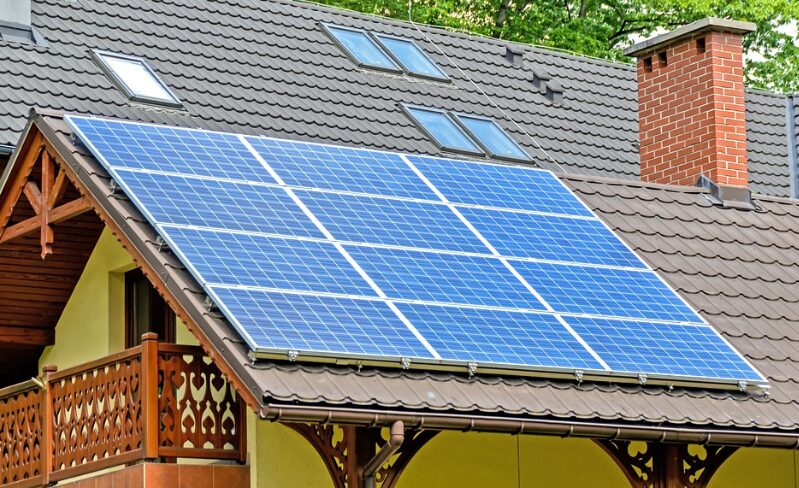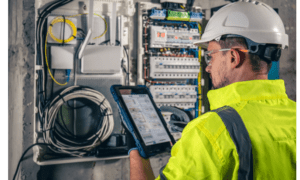Switching to solar energy gives homeowners options for powering their homes while reducing reliance on traditional electricity sources. When working with a residential solar energy company, homeowners must decide between grid-tied and off-grid systems, each offering unique advantages depending on energy needs and location. A grid-tied system connects to the utility grid, allowing homeowners to use solar and grid electricity, while an off-grid system operates independently with battery storage. The choice between these systems depends on cost, energy consumption, reliability, and long-term energy goals. We will explore how residential solar energy companies help homeowners understand the differences between grid-tied and off-grid solar systems, guiding them toward the most suitable energy solution.
How Grid-Tied Systems Work and Their Benefits
A grid-tied solar system is the most common type of residential solar installation. It connects directly to the local utility grid, allowing homeowners to generate solar power while remaining linked to traditional electricity sources. During daylight hours, solar panels produce electricity that powers the home. If the system generates more electricity than needed, the excess energy is sent back to the grid. Homeowners receive credits through net metering programs in many areas, reducing their overall electricity costs.
One of the main benefits of a grid-tied system is its cost-effectiveness. Without the need for battery storage, installation costs are lower compared to off-grid setups. Homeowners can rely on grid electricity when solar production is low, such as at night or on cloudy days. This eliminates the concern of running out of stored energy. Additionally, solar energy companies help homeowners take advantage of financial incentives, including tax credits and rebates, further reducing upfront costs.
Residential solar energy companies also ensure that grid-tied systems are appropriately integrated with utility requirements. Grid interconnection agreements and compliance with local regulations are necessary for homeowners to receive approval from their utility provider. By handling these processes, solar companies make it easier for homeowners to transition to solar energy while benefiting from the grid’s reliability.
How Off-Grid Systems Function and Their Advantages
An off-grid solar system operates independently from the utility grid, generating and storing all the electricity needed for a home. These systems require battery storage to store excess solar energy at night or when sunlight is insufficient. Off-grid setups are commonly used in remote locations with limited or unavailable grid access. Residential solar energy companies design these systems to ensure homeowners have a consistent and reliable energy supply.
One of the key advantages of off-grid systems is energy independence. Homeowners are not affected by power outages or fluctuations in electricity rates. Since all energy is produced and consumed on-site, off-grid homes avoid monthly utility bills, providing long-term financial savings. Solar companies help homeowners determine the correct battery capacity to ensure enough energy is always available.
An off-grid system design requires careful planning to balance solar energy production with storage capacity. Solar energy companies assess household energy usage, seasonal sunlight availability, and backup power needs to create an efficient system. Some homeowners choose to include backup generators to provide additional power during prolonged periods of low sunlight. Solar companies offer customized solutions to ensure that off-grid systems provide consistent energy without interruptions.
- Comparing Costs and Installation Considerations
The initial investment for grid-tied and off-grid solar systems varies based on equipment, installation requirements, and energy needs. Grid-tied systems are generally more affordable due to the absence of battery storage. Since the grid is a backup power source, fewer components are required, making installation faster and less complex. Residential solar energy companies guide homeowners in selecting the right system size based on energy consumption and available incentives.
Off-grid systems involve higher upfront costs because they require batteries and additional equipment to store and manage electricity. Battery storage technology has improved in recent years, but it still adds to the overall cost of an off-grid system. However, off-grid solar can be a more cost-effective long-term solution for homeowners in remote areas where utility connections are expensive or unavailable.
Maintenance requirements also differ between the two systems. Grid-tied solar panels require minimal upkeep, mainly periodic inspections and inverter checks. On the other hand, off-grid systems require ongoing battery maintenance and monitoring to ensure energy availability. Solar companies provide homeowners with maintenance plans that keep both systems running efficiently.
- Energy Reliability and Backup Power Solutions
Reliability is an essential factor when choosing between grid-tied and off-grid systems. Grid-tied solar systems offer stability because they can draw electricity from the grid when solar production is low. However, these systems do not function during power outages unless equipped with battery backup. Traditional grid-tied systems automatically shut off for safety reasons when the grid goes down.
Off-grid systems provide uninterrupted energy access, making them ideal for locations prone to power outages. Homeowners relying on off-grid solar are unaffected by grid failures, as their energy supply comes entirely from solar panels and stored battery power. Residential solar energy companies offer solutions such as high-capacity battery storage and hybrid backup systems that combine solar energy with backup generators for added security.
Hybrid solar systems are another option, offering the benefits of both grid-tied and off-grid solutions. These systems remain connected to the grid while incorporating battery storage, allowing homeowners to store energy during outages or peak demand periods. Solar companies help homeowners decide whether adding battery backup to a grid-tied system is worthwhile based on their energy needs and local grid reliability.
- Choosing the Right System for Homeowners
Selecting between a grid-tied and off-grid system depends on several factors, including energy goals, location, and financial considerations. Residential solar energy companies assess each homeowner’s situation to recommend the most suitable option. A grid-tied system provides affordability and convenience for those looking to reduce electricity bills while maintaining access to the grid. For homeowners in remote areas or those seeking complete energy independence, off-grid solar offers self-sufficiency and protection from power disruptions.
Solar companies also educate homeowners on how their chosen system will impact daily energy use. Grid-tied homeowners can maximize savings by adjusting electricity consumption to align with peak solar production hours. Off-grid homeowners must manage energy use carefully to ensure stored power lasts through the night or periods of low sunlight. Solar companies help homeowners get the most out of their systems by providing energy management strategies. Solar Energy CT services give homeowners customized guidance on selecting and optimizing their solar systems to achieve maximum efficiency and savings.
Understanding the Benefits of Both Systems
Working with a residential solar energy company allows homeowners to choose the right solar system that aligns with their energy needs, budget, and long-term goals. Grid-tied systems provide affordability, lower installation costs, and access to net metering, making them a practical choice for many homeowners. Off-grid systems offer energy independence and long-term cost savings, making them ideal for those in remote locations or seeking complete self-sufficiency.
The choice between grid-tied and off-grid solar depends on energy consumption, location, and backup power needs. Residential solar energy companies guide homeowners through the decision-making process, ensuring they understand the benefits and challenges of each system. As solar technology continues to evolve, homeowners have more options than ever to customize their energy solutions. By understanding the differences between grid-tied and off-grid systems, homeowners can confidently transition to solar power and enjoy the long-term benefits of renewable energy.



































